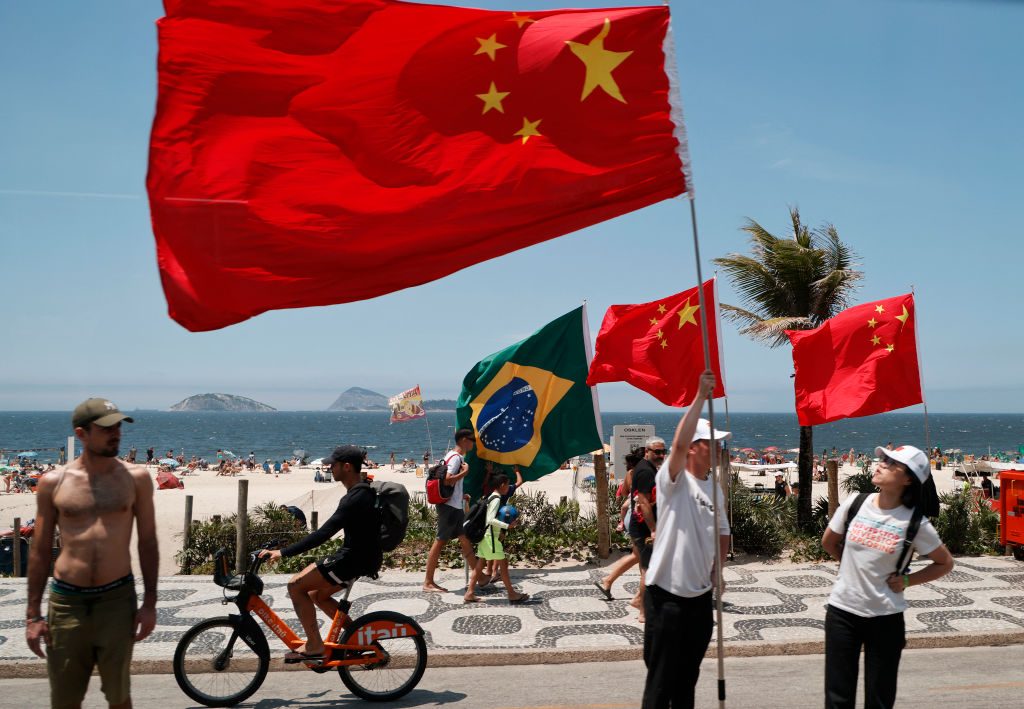US President Donald Trump’s imposition of 50% tariffs on all imports from Brazil, on top of any sectoral tariffs, has shocked the country — though not as much as might be expected. The market’s reaction, with a small decline for the Brazilian real against the dollar already reversing, tells its own tale. Rather, just as Trump’s stated aims are political, not economic, so it is the political consequences that matter more.
In Trump’s 9 July letter to Brazilian President Lula da Silva, the US leader cites a “Witch Hunt” (sic) against former president Jair Bolsonaro (2019-22). Bolsonaro, already barred from seeking office until 2030, is currently standing trial along with 80 other co-conspirators for allegedly attempting a coup in January 2023, a few months after his election defeat.
Trump additionally cites attacks on “the Fundamental Free Speech Rights of Americans” (sic), an apparent reference to a Brazilian Supreme Court ruling last month, whose result is that social media companies would be made responsible for criminal or offensive content on their networks. This follows an episode last year when X remained off-air for six weeks due to a conflict between the court and Elon Musk over content removal. As such, questions of free speech, justice, and national sovereignty have been thrown together in confusing ways.
Brazil is “a sovereign country with independent institutions that will not accept tutelage from anyone,” responded President Lula, while also emphasising Bolsonaro’s trial was a matter for Brazilian justice. Brazil’s record on free speech online, it must be said, is poor, and does not benefit from the protections the US constitution affords — but it is ultimately a Brazilian matter. Moreover, it is a Congress dominated by the Right whose failure to legislate on the question that has prompted the Supreme Court to act. The situation is lamentable.
The Left has sought to pin the blame for the tariffs on Bolsonaro allies, with some justification. Congressman Eduardo Bolsonaro, the former president’s son who is close to conservative groups in the US, had lobbied the White House to put pressure on Brazil to save his father from a possible prison sentence, and yesterday thanked Trump for the tariffs. Lula’s centre-left Workers Party is openly discussing impeaching the ostensible nationalist Eduardo Bolsonaro.
Jair Bolsonaro, meanwhile, is said to be considering lobbying the White House to reverse the tariffs — a way of taking back control of a narrative the Left is now dominating. This, then, would all be political theatre — a prelude to Trump doing what he has done in so many other cases and U-turning on the tariffs, with Bolsonaro emerging the big winner.
Behind domestic political tussles and accusations is the serious matter of international trade and alliances. Brazil has just hosted the Brics summit in Rio de Janeiro, with some reports maintaining that Trump’s true motivation is to punish the alliance for having criticised his indiscriminate and unilateral tariffs, and for making noises about alternatives to the dollar. Punishing Brazil is easier than punishing China — even though it is large, Brazil has little weight to throw around. This, combined with a history of balanced diplomacy, explains why it is one of the most enthusiastic and ideological members of the Brics. The tariff would thus send a message to any multipolarist pretenders.
As ever with Trump, though, we are dealing with a slew of tactics but little evident strategy. Playing fast and loose with tariffs is consistent with his quick win-no lose approach to international politics. The truth is that there is no real trade imbalance with Brazil: exports to the US total $20 billion, which is a touch below imports. Moreover, Brazil’s exports to the US are 12% of the total, way below the 26% to China, and still below the 16% to the EU. With one important exception (Embraer aircraft), much of Brazil’s exports to the US are raw commodities or semi-finished goods (oil, steel, coffee, beef) — exports that would readily find other buyers. The 50% tariffs on Brazilian exports would see China the winner, not the US.
No one can yet tell how this will play out and whether the tariffs will indeed come into effect on 1 August as declared. But Trump’s attempt to meddle in Brazilian affairs has already exposed how so many declared nationalists, in North and South America, have little concern for the sovereignty they are meant to defend.











Join the discussion
Join like minded readers that support our journalism by becoming a paid subscriber
To join the discussion in the comments, become a paid subscriber.
Join like minded readers that support our journalism, read unlimited articles and enjoy other subscriber-only benefits.
Subscribe